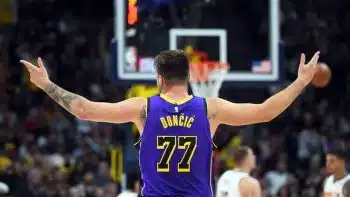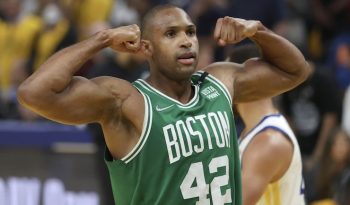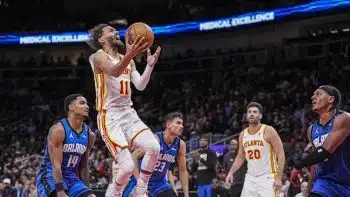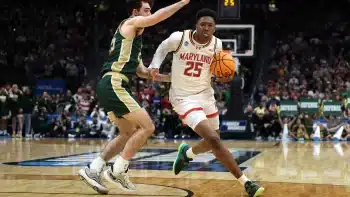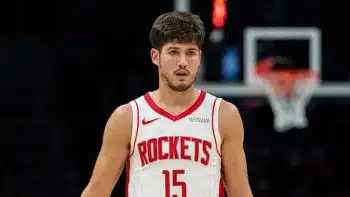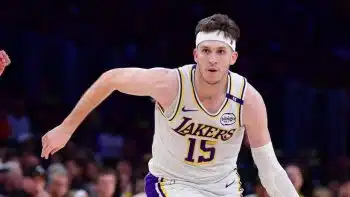NBA
NBA Daily: Mike Miller And The Surprising Competence Of The Knicks
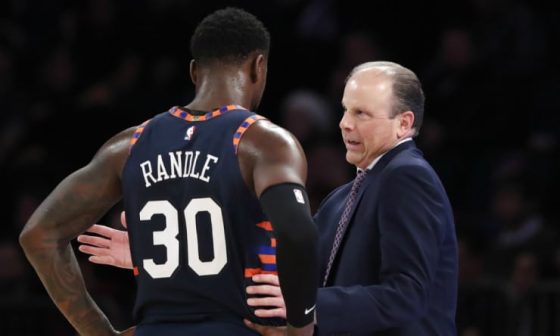
Mike Miller owes the NBA a thank you.
Two years ago, his display of competence as the New York Knicks head coach would have been met by jeers from the always-vocal New York fanbase. Now, reaching a 5-6 record in his first three weeks at the Knicks’ helm should earn Miller applause, whether it is actually offered or not.
None of this was expected for Miller, a basketball lifer with a 162-209 head coaching record in the NCAA. This was, in fact, his first season at the NBA level in any facet. After just 22 games as an assistant coach, Miller was named New York’s interim head coach when the organization fired David Fizdale.
Since that Dec. 6 change, the 55-year-old NBA coaching rookie has merely led the then 4-18 Knicks to a 5-6 record, showing a semblance of respectability not often seen by the home team on Madison Square Garden’s hardwood.
Two years ago, before the NBA flattened the lottery odds, such a burst of winning would be unquestionably damaging to the franchise’s long-term growth. Now, though, Miller’s influence does not harm the future as it distinctly develops the present.
The differences between his tenure and Fizdale’s performance to start this season are stark, many and go beyond the record.
New York’s offensive rating under Fizdale: 101.9, No. 30 in the league.
New York’s offensive rating under Miller: 107.5, No. 18 in the league since Dec. 6.
Defensive rating under Fizdale: 112.9, No. 23 in the league.
Defensive rating under Miller: 109.9, No. 19 in the league since Dec. 6.
For those not wanting to do the math, the net rating under Fizdale was a dismal -10.9, last in the league, while Miller has raised that to a competitive -2.5, No. 20 since Dec. 6.
The greatest aspects of that shift have come on offense, where Miller’s efforts have been aided by point guard Elfrid Payton — he missed 17 of the 22 games under Fizdale with a hamstring injury — but even in returning, Payton has been working as a complementary piece, coming off the bench in 7 of the Miller-coached 11 games. Whether due to Payton or primarily a result of Miller’s scheme, the Knicks now operate at a measurably faster clip and subsequently move the ball both more often and more efficiently.
| Under Fizdale | Under Miller | |
| Assist % | 54.4 | 56.2 |
| Effective FG % | 48.4 | 50.0 |
| True Shooting % | 51.6 | 53.0 |
| Pace | 98.59 (No. 28) | 100.46 (No. 15) |
All stats via nba.com as of 12/30/2019.
New York is not beating the NBA’s best by any means, but wins against the Sacramento Kings and the Brooklyn Nets evaded Fizdale, losing to the former by 21 points this season, while Miller has already notched those.
Perhaps more suggestive of sustained success, the Knicks are not getting routinely blown out anymore. Whereas Fizdale logged losses by 20 at Detroit, 21 to the Cleveland Cavaliers and 18 at Chicago all within one early November week, Miller’s first game was a one-point loss against the Indiana Pacers and a week later he coached New York to a six-point loss at Denver, notoriously one of the league’s toughest road trips.
“I think we’ve had some really good games over the last 10 games,” Miller said. “I know we’ve learned a lot. That’s what we want to do. We’re either going to win games or we’re going to learn something that helps us win a game later.”
Those losses obviously help the Knicks’ lottery hopes, but beating the Golden State Warriors (in overtime), the Atlanta Hawks and the Washington Wizards does not. That’s where Miller owes the NBA some appreciation. A few years ago, this rash of winning would have dropped New York’s lottery odds to 15.6 percent from 25 percent. Now, moving from the league’s worst team to its third-worst team does not change the Knicks’ chances at all.
The Wizards and Cavaliers are both within a game of New York in the win column, so Miller’s success could yet have an adverse effect, but even that would be minimal. The fifth-best odds in the lottery are 10.5 percent, not too far off the top three’s 14 percent.
Risking that 3.5 percent to develop the Knicks’ younger assets is a worthwhile endeavor, and that may be the most underrated part of Miller’s surge. While he has made New York’s questionable offseason signings look like a bit more tolerable trade fodder, he has also turned young pieces Mitchell Robinson and Kevin Knox into positive contributors.
Mike Miller is now 5-6, w/ much attention going to how he's helped Julius Randle. But how about his effect on the Knicks core pieces?
Mitchell Robinson under Fiz:
-12.5 net ratingMitch w/ Miller:
+3.6Knox under Fiz:
-15.3Knox w/MM:
+2.4RJ under Fiz:
-10.3RJ w/MM:
-4.5— Jonathan Macri (@JCMacriNBA) December 29, 2019
The odds remain slim the Knicks retain Miller after this season, simply given the realities of that front office, but whoever takes over next will owe him a debt of gratitude.
Not only for reversing the locker room’s direction of habitual losing, but also for bettering the roster without costing New York a draft pick.
